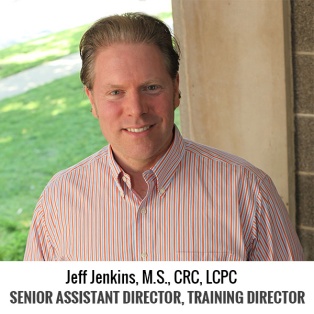Tags
career advising series, Career Development, first-year students, networking, Northwestern, professional introduction, professional narrative
 By Jeff Jenkins, NCA senior assistant director and career counselor, serving students in the School of Communication, Weinberg, Bienen and School of Professional Studies.
By Jeff Jenkins, NCA senior assistant director and career counselor, serving students in the School of Communication, Weinberg, Bienen and School of Professional Studies.
Many first year students we meet say they are not sure how to introduce themselves to employers or alumni. The idea of telling someone who is new to us about ourselves may seem difficult. However, let us look at this in a different context. Often when asked to describe a movie we have seen or a concert we have attended, we are able to tell the story to our friends. We use the same set of skills when meeting someone new in social situations. If asked to introduce ourselves to an alum or employer, we are suddenly at a loss for words.
When asked about the elements of a good story in the spring issue of Northwestern Magazine, Northwestern University Theatre Professor Rives Collins offers some advice on storytelling. “It has to be a story that the teller loves to tell,” Collins says. And, “Know why you’re telling the story, and that will guide you as to what to leave out.” Your story in a concise manner is the professional narrative.
What is a Professional Narrative?
A professional narrative is a brief 30-second statement that introduces yourself using some key facts about you designed to generate a conversation with a networking contact or employer. The introduction allows someone to learn more about you and connect over a shared interest or experience. If you are engaged in an internship or a job search, one fact should relate to your professional goals
Take some time to reflect on who you are and include the following six elements.
Elements to consider:
1. Briefly introduce yourself
Think about your interests. Why are you at Northwestern? What do you hope to accomplish while you are here? In addition, it’s helpful to let the listener know the following about yourself:
- Year in school (or year of graduation) and major(s)
- Your interest in the particular industry or career
- Your knowledge of the organization
- Why you are speaking with them
2. Highlight strengths
Are you taking time to reflect on your strengths? Perhaps you are good at writing, research, math, playing an instrument, or talking with people. This is a good time to highlight your uniqueness. For example, you can briefly discuss research, awards or presentations you have given. Maybe you have recently joined a student organization or plan to volunteer this summer. Do not repeat anything you mentioned in your introduction.
3. What are your goals for this conversation?
Identifying your goal or purpose may help the person you are speaking with point you in the right direction for further assistance. Be succinct. If your goals are not clear, they will not know how to help you.
4. Wrap it up
Pull everything together in a brief but interesting concluding sentence. This will reaffirm what you want and how they can help you.
5. Ask a question
Be curious. People enjoy sharing their own interests. Ask questions, such as:
- What do you do?
- How did you get involved in this career?
- What do you like most about your job?
- What advice do you have for a student exploring this career?
6. Follow-up
While still in conversation, explore possible opportunities for continuing the conversation, for example:
- Perhaps we could meet and discuss (name of industry) further?
- Can we meet again and discuss my resume?
- Whom else would you recommend I speak within your organization/outside your organization?
- Can I follow-up with future questions I may have?
- Can I get your business card?
The first time you use your professional narrative, it doesn’t have to be perfect. Learning how to construct your narrative takes time and practice. It is most important to maintain good eye contact and show enthusiasm and interest during the conversation–this will leave a far better impression than repeating a perfect narrative that may sound rehearsed.
Want to learn how to build and practice sharing your professional narrative? We invite you to make an appointment with a career counselor or adviser at NCA to get started at any time.
